View the Post on the Blog
View the Post on the Blog
Joel asks a variety of leading doctors, researchers and patient advocates for their reflections on the FDA Drug Development Workshop.
A short while ago, the US Food and Drug Administration (FDA) held a workshop for patients, doctors, and other stakeholders, to talk about drug development for myalgic encephalomyelitis/chronic fatigue syndrome (ME/CFS). You can read a summary of the first and second parts of day one of the two-day workshop, here and here. (Day two summaries will be published shortly).
Following the event, we caught up with some of the doctors and the advocates who attended and asked them each how they thought the workshop went.
Dr. Derek Enlander
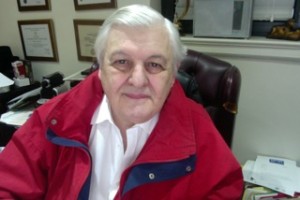
Dr. Derek Enlander
How do you think the stakeholder meeting went; is it going to bring about the real change that we need?
"That's a tall order. I think the meeting went very well as a whole, and there was a community spirit that was seen amongst all of the major researchers, which was excellent. That's part of why, I think, it turned out to be a greater success than even the organizers had envisaged. The five major Ampligen stakeholders were represented by two FDA-invited participants and the three non-invited participants - Dr. Dan Peterson, Dr. Charles Lapp, and myself.
"I spoke at the public comment section on the research that is being done at Mount Sinai Medical Ctr., ME/CFS Center, New York. This aroused the curiosity of Dr Elizabeth Unger of the CDC, who came over to me and asked could she pay a visit to our center. I'm sure the Phoenix Rising interview added to this curiosity."
"I wait to see what is going to bring about the real change that we need...I wait to see..."
What, for you, was the highlight of the event?
"The camaraderie of the researchers, some of whom I haven't seen for some time. Most would like to participate and send specimens to our complex whole genome study. José Montoya and I will certainly collaborate. Dan Peterson invited Dr. Nancy Klimas and myself to participate in a secondary session which was held before the main meeting commenced. It was quite generous of him, and when it was over there seemed to be a collective unity among us as we entered the ballroom where the main meeting was held."
"Then there was the direct contact with the FDA principals including Admiral Sandy...and the invitation to submit new ideas by telephone or mail regarding potential new substances, was very interesting and helpful. This included instructions for new INDs (Investigational New Drug Applications)."
"The five Ampligen research center directors met for dinner and a very good discussion ensued. And filmmaker Susan Douglas interviewed several of the participants including myself for her documentary film "What About ME?""
What was one new thing you learned at the workshop?
"At the meeting, I was shocked to hear that Kim Mc Cleary had resigned from the presidency of the CAA. I had met her about 20 years ago when she came to visit me in New York, I haven't seen her since. I went over to her and wished her well."
"The FDA being helpful on IND's for new preparations, and contact information on the principals."
"There were some very good moments, and of course a point or two that was less inspiring, but on the whole it was absolutely a worthwhile meeting."
Jennie Spotila
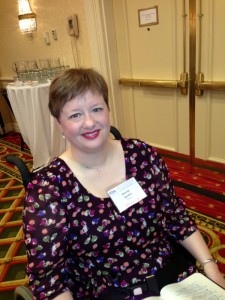
Jennie Spotila
How do you think the stakeholder meeting went; is it going to bring about the real change that we need?
"I think that the meeting went well, overall. I see change at FDA, and felt that the FDA representatives were really listening to the patients and trying to understand our experiences. The real issue in securing FDA approval for a treatment lies with the drug developers, and whether they can take advantage of the expedited approval pathways and provide sufficient data to bring something to market."
What, for you, was the highlight of the event?
"There was no single highlight to the event. I thought the patient sessions on Thursday were excellent, and I think we can be proud of everyone who represented us that day. I also thought Dr. Munos' presentation on Friday was thought-provoking and challenging. I missed the last panel on Friday, to my disappointment, but I will be watching it on video."
What was one new thing you learned at the workshop?
"One thing I learned at the meeting was the power of our collective experience. It was fascinating to listen to the commonalities and differences among patients. But putting all of that together painted a vivid portrait for FDA that looks very different than the common stereotypical views of CFS. That was very powerful."
Dr. Judy Mikovits
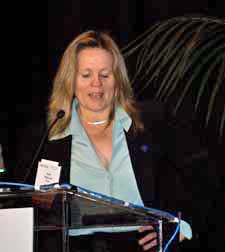
Dr. Judy Mikovits
How do you think the stakeholder meeting went; is it going to bring about the real change that we need?"I think the event went very well. The patient meeting on Thursday was very well done. I felt like Sandra Kweeder and co-workers from the FDA were very serious about learning as much as possible about the disease in order to further drug development.
"I don't think any single agency or event will bring about the real change the disease needs but actually think that perhaps that change has already occurred because of raised awareness for the disease...as Ian Lipkin said last year, the silver lining in the difficult time we all suffered with the mistake of XMRV was the awareness of the disease.
What, for you, was the highlight of the event?"The highlight of the event for me was a patients supported mixer held after the day one meeting in which patients, physicians, researchers, advocates and drug companies and the FDA committee members themselves, talked to each other for several hours. Sandra Kweeder actually stayed until 8pm and with genuine interest talked to many of us. For the members of the committee to truly engage and care about the stakeholders on their own time was amazing!
"My personal highlight was the genuine welcome and gratitude I received from the researchers and physicians. Dan Peterson went out of his way to come and thank me for my comments. That the patient and scientific community be healed from the painful events of the past few years; come together to work together to develop treatments now, is a new era in CFS treatment and I could not be happier that we are moving forward with hope and so much opportunity for multiple treatment strategies targeting the well-known immune abnormalities, and doing it today!!"
What was one new thing you learned at the workshop?
"I learned that the mandate for this FDA committee was from the Surgeon General's Office and that is a very good thing for patients."
Mary Dimmock
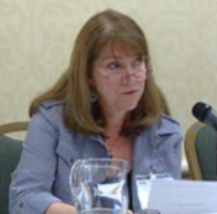
Mary Dimmock
How do you think the stakeholder meeting went; is it going to bring about the real change that we need?
"There is good news and not so good news on how it went. The good news is that the FDA seems committed to helping where it can - guidance on clinical trial design and outcome measures, guidance on validating biomarkers, an overall guidance document for the industry. That's fantastic and essential to help to bring about the change we need.
"But alone it's not enough and that's the not so good news. Drug development is downstream from research and there are perennial issues here that must be addressed to make drug development work more effectively and to attract investment by pharma - issues like the bad definition, inadequate characterization of subtypes of patients, lack of funding from the NIH and inability of researchers to access funds, lack of studies to validate the biomarkers and outcome measures, lack of preliminary clinical trials.
"I was also disappointed to see so little presence by pharma but given these issues, it's not surprising.
"But what was good about these issues is that not only did they get brought to light in a very explicit way but there were also some interesting ideas on how to address them.
"What I want the most is a sense of urgency and committment from those who can address those early issues around the definition and funding and validating biomarkers and outcome measures. I dont think we have that yet."
What, for you, was the highlight of the event?
"Seeing the light bulbs go off for some people in Department of Health and Human Services (DHHS) and others as they came to more deeply understand how devastating this disease is, how significantly it impacts people's quality of life and how complex ME is. Understanding the full severity and impact on quality of life is essential to a fair assessment of the risk-benefit of any drug that comes up for review. Accounting for the complexity of the disease is essential to designing clinical trials that will be more likely to succeed."
What was one new thing you learned at the workshop?
"I came away with a much deeper appreciation of the challenges in designing a clinical trial because of the complexity of the disease. Even with the best case definition in place, there are so many factors to consider - the profile of viral and cytokine markers, types of co-morbid conditions, the medications that the patient is on, whether they have been overly exerting themselves, whether the disease is waxing or waning, how to assess drug side effects when the symptoms that patients experience every day are similar to side effects of drugs - and to control or manage so that the results can be compared across patients. Not impossible, and some good ideas were discussed on what is required.
"I am encouraged to see that the FDA intends on writing a guidance document that might help provide information on how to do this"
Dr. Nancy Klimas
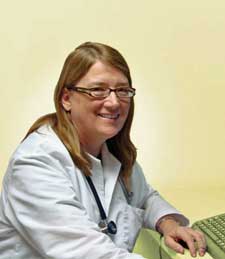
Dr. Nancy Klimas
How do you think the stakeholder meeting went; is it going to bring about the real change that we need?
"It certainly signaled the FDA’s willingness to help a pharmaceutical company develop a product approval for ME/CFS. It’s a wait and see to know if pharma will see it as encouraging."
"The Lilly representative threw some cold water on the process in the last session when she asked if the FDA would back a specific tool to measure clinical response. Apparently there is a process that the FDA will engage in to do so, but it costs roughly $750,000 and three years to see it happen; a cost normally underwritten by pharmaceutical companies when they want to push a product through based on symptom improvement alone. So I am left not really knowing if the outcome variables we currently use (e.g. VO2 max, actigraph (objective measures), SF36, MFI (subjective measures)) would be enough, or if the FDA would require additional data to support a specific primary outcome variable for the field as a whole."
What, for you, was the highlight of the event?
"Certainly the first day, when the patients described the severity and nature of the illness seemed to be heard well by the FDA leadership present. One CRO from a pharmaceutical company told me she thought it the best and most important part of the program."
What was one new thing you learned at the workshop?
"The newer ways to expedite approvals and the willingness of the FDA to engage in a discussion on endpoints and variables measured in a trial prior to the design of the study."
Robert Miller
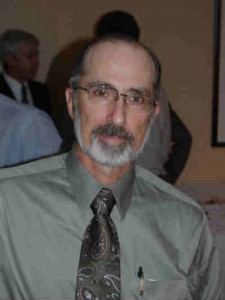
Robert Miller
How do you think the stakeholder meeting went; is it going to bring about the change that we need from the FDA?
"I believe this Landmark ME/CFS Stakeholder's Workshop was one of, if not the most productive meetings ever held with federal health agencies. In attendance was NIH Director Francis Collins and FDA CDER Director Janet Woodcock.
"Yes, for the first time ever I feel like all the agencies listened to the patients. And the patients and loved ones came prepared, they were able to, I think for the first time explain in such great detail what it is like to have this illness, that the health agency representatives for the first time were able to feel to some degree, what it feels like to have this illness."
What, for you, was the highlight of the event?
"The best thing to come out of this meeting was hearing the agency representatives state that they thought they understood our illness, but after hearing the testimony of patients, loved ones and the expert clinicians they realized they had no idea of the suffering or how the illness affects the patients."
What, if anything, did you learn from the event?
"Well it was not only from this event, but from others that led to this event as well - Never lose hope, and persevere in what you know to be true."
Thank you to each of the individuals who provided comments for this article. It has given a great insight into the workshop for those of us who were unable to attend.
Joel was diagnosed with ME/CFS in 2009 but struggled with the illness for some time prior to this. He loves to write, and hopes to regain enough health to return to the career he loved and have his work published.
Phoenix Rising is a registered 501 c.(3) non profit. We support ME/CFS and NEID patients through rigorous reporting, reliable information, effective advocacy and the provision of online services which empower patients and help them to cope with their isolation.
There are many ways you can help Phoenix Rising to continue its work. You can even donate significant sums, at no cost to yourself, as you shop online! To find out more, visit Phoenix Rising’s Donate page by clicking the button below.
View the Post on the Blog

